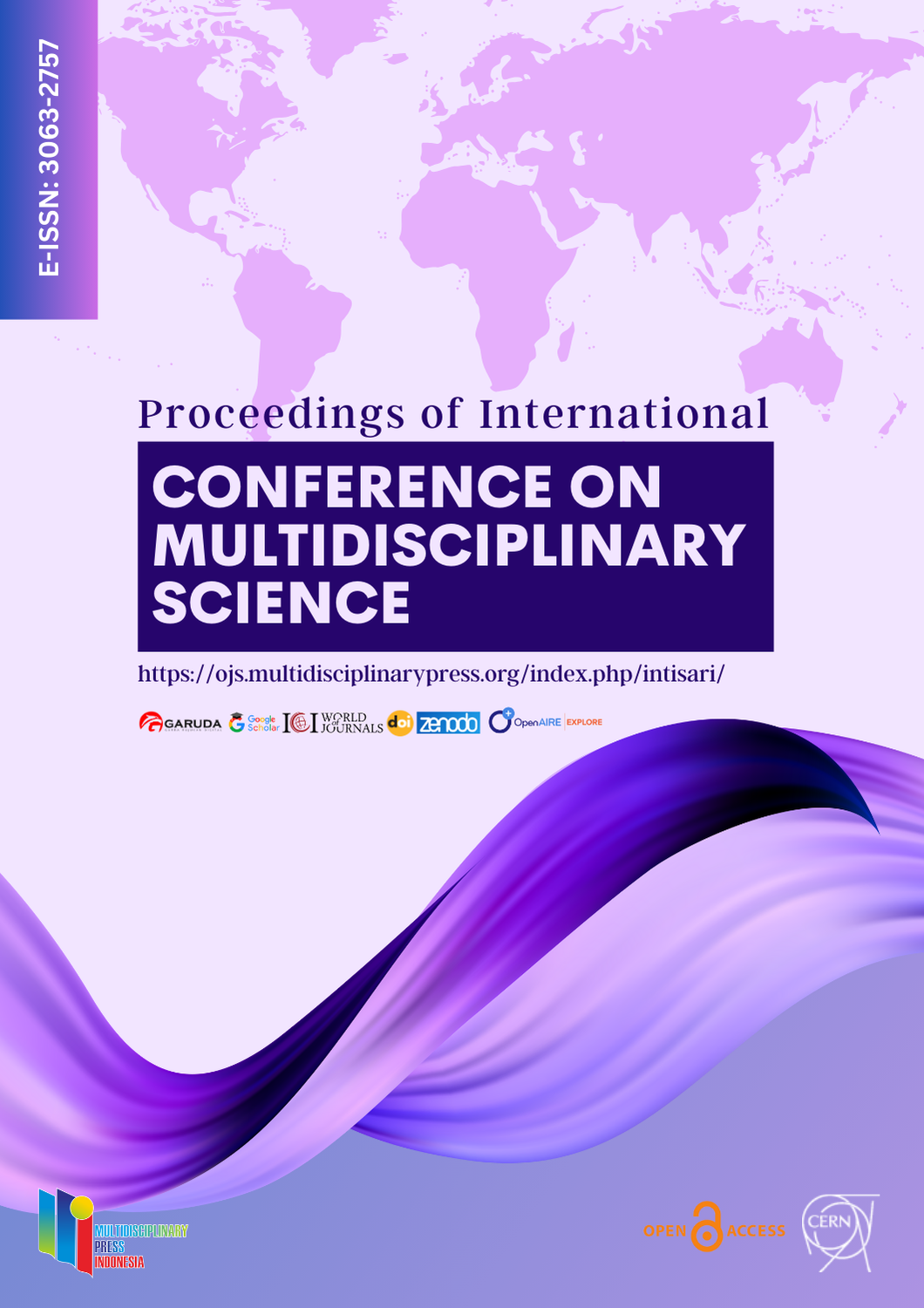Maximizing Rewards Through Work Infrastructure
Keywords:
Competence, Work Discipline, Work Infrastructure, RewardsAbstract
This study aims to analyze the influence of Competence and Work Discipline on Rewards, with Work Infrastructure as a moderating variable at PT PLN (Persero) Rantauprapat Customer Service Implementation Unit. The research employs a quantitative approach using Partial Least Squares Structural Equation Modeling (PLS-SEM) as the method of analysis. A total of 86 employees participated as respondents in this study. The results show that Competence (coefficient = 0.388; T-statistic = 3.266; P-value = 0.001) and Work Discipline (coefficient = 0.276; T-statistic = 2.307; P-value = 0.011) have a positive and significant effect on Rewards. Work Infrastructure also has a positive and significant effect on Rewards (coefficient = 0.362; T-statistic = 3.274; P-value = 0.001). However, the moderation analysis revealed that the interaction between Competence and Work Infrastructure (coefficient = -0.031; T-statistic = 0.235; P-value = 0.407) and the interaction between Work Discipline and Work Infrastructure (coefficient = 0.112; T-statistic = 0.900; P-value = 0.184) do not have significant effects on Rewards. Therefore, employee rewards are more directly influenced by competence, discipline, and the availability of work infrastructure, rather than by the moderating role of infrastructure.
Downloads
References
Amin, M., Sari, S.P. and Rachman, A. (2019) ‘Faktor-faktor yang Mempengaruhi Disiplin Kerja Karyawan Penunjang Medis dan Non Medis’, Jurnal Kesmas Asclepius, 1(1), pp. 35–44. doi:10.31539/jka.v1i1.519. Ghozali, I. (2016). Structural Equation Modeling: Metode Alternatif dengan Partial Least Square (PLS). Semarang: Badan Penerbit Universitas Diponegoro.
Aris Wijayanto, H. Musa Hubeis, M. J. A. dan A. H. (2011). Faktor-faktor yang Mempengaruhi Kompetensi Kerja Karyawan. Manajemen IKM: Jurnal Manajemen Pengembangan Industri Kecil Menengah. https://doi.org/10.29244/1-9
Edy Sutrisno, (2019). Manajemen Sumber Daya Manusia. Cetak ke sebelas. Prananda Media Group, Jakarta.
Hasibuan, Malayu. (2016). Manajemen Sumber Daya Manusia. Jakarta: Penerbit Bumi Aksara.
Mesra B, Ferine, K. F., & Nur, M. (2024). Analysis of Compensation, Work Discipline and Job Promotion on Employee Performance with Work Morale as an Intervening Variable. Nternational Conference in Artificial Intelligence, Navigation, Engineering and Aviation Technology (ICANEAT), 1(1). http://creativecommons.org/licenses/by-sa/4.0/
Rivai, Veithzal, (2017). Manajemen Sumber Daya Manusia. Untuk Perusahaan. Cetakan I. Jakarta: Murai Kencana.
Robbins, S. P., & Judge, T. A. (2020). Organizational Behavior. Jakarta: Salemba Empat.
Sinambela. (2016). Manajemen Sumber Daya Manusia: Membangun Tim Kerja yang Solid untuk Meningkatkan Kinerja. Jakarta: Bumi Aksara.
Siagian, S. P. (2020). Manajemen Sumber Daya Manusia. Jakarta: Bumi Aksara.
Sugiyono. (2018). Metode Penelitian Kuantitatif, Kualitatif, dan R&D. Bandung: Alfabeta.
Wibowo. (2020). Manajemen Kinerja. Jakarta: Rajawali Pers.
Wijaya, C. Ojak Manurung, (2021). Produktivitas Kerja. Jakarta: Kencana.
Downloads
Published
How to Cite
Issue
Section
Categories
License
Copyright (c) 2025 Hendra Gunawan Nainggolan, Kiki Farida Ferine

This work is licensed under a Creative Commons Attribution 4.0 International License.





